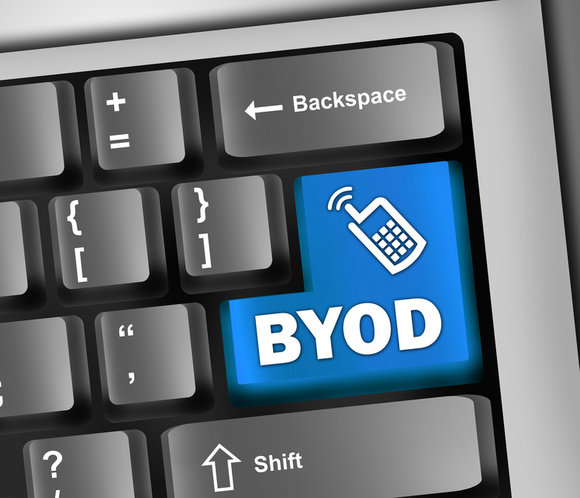The consumerization of IT, a revolution sparked by the iPhone, is what has made space for BYOD in the Enterprise. Bring Your Own Device (BYOD) or Bring Your Own Technology (BYOT), is a trend that took off in the US back in 2009, (courtesy Intel) in an attempt to permit employees to bring personally owned devices; laptops, tablets and smartphones, and to use the same for official purposes and have access to privileged company information and applications on the device of their choice.
Fast forward to 2017, it is inevitable for employees to not use their own mobile devices for work purposes. Employee’s preference remains with personal devices because these are often more cutting-edge in terms of technology and also remains a suitable choice for being connected-on-the-go! However, the pros and cons of BYOD have been discussed time and again, in understanding what it really means to the enterprise IT.
In the developing world, Pakistan is not far behind in the implementation of BYOD policies within the corporate or enterprise IT. Pakistan’s first implementation of BYOD policy in an organization was by Warid Telecom, a project carried out by Aruba Networks for BYOD and WLAN.
Read: The .AI Life
In 2014, a local survey titled BYOD Scope: A Study of Corporate Policies in Pakistan, by Dr. Zahid Anwar, Shuja Ahmad, Haris Javaid and Muhammad Arslan Ejaz, was carried out in three organizations that already had a BYOD policy in place. This included two telecom companies and one ISP (internet service provider).
Results of the survey indicated that a majority of the employees at the time were not aware of the formal term ‘BYOD’ but understood the workings of connecting devices to the internet or applications at the workplace.
Read: PTA Announces Next-Gen Mobile Services Auction: May 16 2017
In Pakistan and internationally, smartphones are the most preferred device for use whereas email is the most used application. The survey showed that 83% were using smartphones as their preferred personally owned device, followed by the use of tablets at 66%.
Data breach, regarded as the weakest link or consequence of the BYOD policy, has also been reported in the survey. Due to reasons of confidentiality, organizations are reluctant to share sensitive information of this nature, but they indicated in the survey that they had faced this as a consequence of adopting this as a policy.
At a survey conducted live at IDG Enterprise events in Karachi & Islamabad in mid 2016, a majority of the participants representing the FSI and telecom sectors said their organizations were already looking into formally adopting BYOD into the IT policy framework of the organization as this was one trend seen as ‘inevitable’, only with strict security measures in place as well.
Read: The New CIO: Chief “Information.. urm What” Officer?
Notable findings from the survey are as follows:
- 94% said mobile and tablet devices were ‘critical’ for their organization’s enterprise mobility plans
- 52% said enterprise mobility and BYOD was ‘very important’ to their organization’s future success
- 41% said mobile security was ‘very important’, whereas 21% said it was ‘critical’ for the company’s mobile strategy
Ex-Managing Director for Oracle Pakistan & SAGE West, Ahsen Javed, speaking to IDG in an exclusive interview said,
“There is a bigger term to enterprise mobility: BYOD to the marketplace. It has been happening in Pakistan also and that has been pushing our customers and CIOs to adopt solutions that actually fit well with the modern emerging consumer trends. There are security areas which they have been focusing on with us, and there is a lot more to do in terms of how ready is the enterprise IT. It’s relatively easy for consumers to shift from an old phone to a modern Android phone. When you are transforming the enterprise IT to something more modern, it is a tedious process and it takes time; but the drive has come from the modern IT users.”
In an article written by Zahir Ali Quettawala, for Journal of The Institute of Bankers Pakistan, a BYOD program can only be effective if it strikes a balance between user-centric and device-centric strategies. All stakeholders, including customers, leaders and executive board of the organization, and organizational functions including IT, HR, Sales/Marketing, Legal and others need be involved in the policy framing to ensure understanding and also avoid any loopholes and ambiguity in the policy that is put in place.
Image source: Computer World








